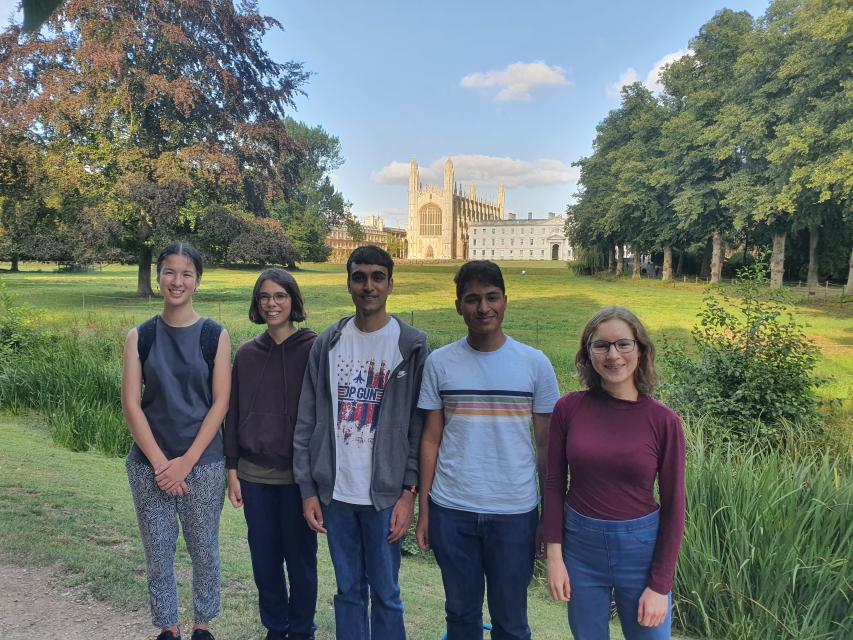The UK’s five-strong school team all brought home medals in this year’s International Olympiad on Astronomy and Astrophysics – the UK’s best ever result in an IOAA.
The team comprised Emma Harris from The Perse, an independent school in Cambridge, Francesca di Cecio from St Paul's Girls' School, an independent in London, Moonis Haider from Bishop Vesey's Grammar School in Birmingham, Reon Raju from The Trinity Catholic Secondary School and Sixth Form College, an academy in Nottingham and Sofia Vasieva from West Kirby Grammar School.
Emma and Francesca both won gold medals while Moonis and Reon won silver and Sofia was awarded a bronze medal; of a total of 297 participants from around the world, Emma ranked 24th, Francesca 33rd, Moonis 56th, Reon 70th and Sofia 121st in the online competition in Bogota, Colombia.
The whole training process was absolutely life-changing in the way it motivated me to work on my astro, given the incredible quality of the teaching we got and how rewarding it was to be able to tackle increasingly complex problems. And also that the camps and the week of the IOAA itself were the most inspiring and exciting experiences ever, and I feel unbelievably lucky to have met and gotten to know everyone there!
Francesca di Cecio
I want to emphasise that the IOAA has taught me more than astronomy and astrophysics. As the intensity of the training process pushed me ever closer to what I thought was my limit, I came to realise that there is no limit if you are resilient enough. I will never forget the training camps and the week of the competition itself, where I formed lasting friendships with amazing people who inspire me to keep challenging myself. I feel incredibly fortunate to have had this experience, and I imagine that I would be a very different person today if it had not happened.
Sofia Vasieva
Oxford’s Department of Physics plays a key role in supporting the British Physics Olympiad and manages much of the day-to-day administration of both the astronomy and original physics strands of the competition. Nick Koukoufilippas, a DPhil student at Oxford was one of two team leaders this year responsible for training the team.
Charlie Barclay, school teacher and academic visitor in Astrophysics, helps to organise the Astronomy and Astrophysics Olympiad in the UK; Charlie reflects: ‘The International Olympiad on Astronomy and Astrophysics is a great way to bring together budding young physicists and mathematicians from around the world who have an interest in astronomy. It is a real privilege to be a part of it and to have shown that UK students can hold their own on an international stage.’
Dr Sian Tedaldi manages the Department of Physics’ outreach work and is also trustee for the British Physics Olympiad; she concludes: ‘Over 30,000 young people now take part in the British Physics Olympiad each year and it is a fantastic resource for developing students’ problem solving skills. The team’s success at the IOAA is the icing on the cake!'

